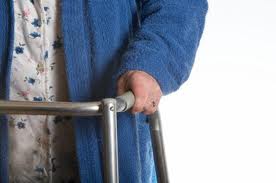|
Avoid DeliriumTen Tips to Avoid Hospital Deliriumage-well.org > prevent age related diseases > avoid-delirium Do you have an elderly relative or friend in hospital?
Studies have shown that when elderly people are hospitalized they have a very high risk of developing hospital delerium. have a 50% greater risk for delirium, an acute and sudden decline in the ability to focus, perception and cognition.By taking these ten steps, you may be able to avoid delirium or at least reduce the risk of developing this condition:
age-well.org > prevent age related diseases > avoid-delirium Top of Avoid Delirium Back to Age-well.org |
Translate this Site
Search this Site
Loading
List of Conditions
|
Alcoholic Liver
|
|
Alzheimers Disease
|
|
Arterioslerosis
|
|
Age-Related Cancer
|
|
Cataracts
|
|
Cholesterol
|
|
Colds and Flu
|
|
Depression
|
|
Diabetes
|
|
Dementia
|
|
Dry Eye
|
|
Enlarged Prostate
|
|
Fibromyalgia
|
|
Glaucoma
|
|
Hair Loss
|
|
Halitosis
|
| Heart Attack
|
| Herniated Disc
|
|
High Blood Pressure
|
|
Incontinence
|
|
Influenza
|
|
Lower Back Pain
|
|
Macular Degeneration
|
|
Menopause
|
|
Osteoarthritis
|
Osteoporosis
|
|
Parkinson's Disease
|
|
Peri-Menopause
|
|
Presbycusis
|
|
Presbyopea
|
|
Prediabetes
|
|
Sarcopenia
|
|
Stroke
|
|
Shingles
|
|
Swineflu
|
Develop Smart Habits
|
Lose Extra Weight
|
|
Lose Bellyfat
|
|
Quit Smoking
|
|
Reduce Alcohol
|
|
Get Enough Sleep
|
|
Eat Healthily
|
|
Cut Down on Salt
|
|
Cut down on sugar
|
|
Avoid Transfats
|
|
Follow the DASH Diet
|
|
Drink Plenty of Water
|
|
Exercise Regularly
|
|
Manage Stress
|
|
Get Your 5 a Day
|
| Eat a Healthy Breakfast
|
|
Get Enough Calcium
|
|
Practice Good Oral Hygiene
|
|
Think Positive
|
Healthy Digestion
|
The Digestive System
|
|
The Intestines
|
|
Prevent Constipation
|
About this Site







